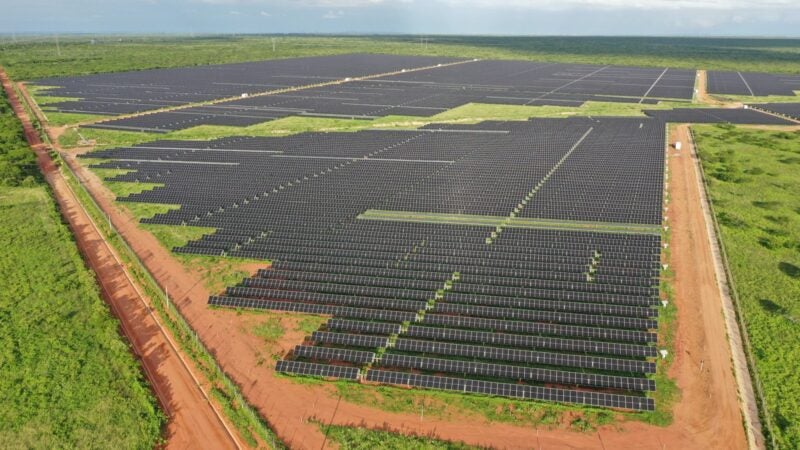
Renewable energy solutions provider Scatec and its partners Hydro Rein and Equinor have commenced commercial operations at the 531MW Mendubim solar plant in Brazil.
The solar project was developed as a joint venture between the three energy companies. Scatec, Hydro Rein, and Equinor have an equal economic interest of 30% in the Mendubim solar project.
In line with the start of commercial operations, Hydro Rein`s subsidiary Alunorte has exercised its call option and holds the remaining 10% stake in the Brazilian solar plant.
Alunorte will offtake about 60% of the estimated power output from the Mendubim facility under a 20-year power purchase agreement (PPA).
The remaining capacity of the solar plant will be sold in the Brazilian power market.
Hydro Rein CEO Olivier Girardot said: “We are thrilled to complete the first of Hydro Rein’s renewable energy projects in Brazil. Our mission is to develop renewable energy solutions for more sustainable industries, and Mendubim does just that.
“Most of the power output will go to Hydro’s alumina refinery Alunorte in Pará, supporting one of the largest decarbonisation projects in the world. We are very proud to take part in this development together with Equinor and Scatec.”
Located in the state of Rio Grande do Norte, the Mendubim solar facility entailed a total capital expenditure (capex) of $430m. The Brazilian solar facility will produce 1.2TWh of clean energy per year.
The electricity generated at the solar plant will deliver power nearly 600,000 households.
Scatec CEO Terje Pilskog said: “The Mendubim solar power plant marks a pivotal milestone in realising our strategic objectives and reinforces our position in a prominent renewable energy growth market, bolstered by our partners Equinor and Hydro Rein.
“The burgeoning solar energy market in Brazil aligns with our commitment to sustainable progress, and we are excited to advance this impactful project with approximately three million tonnes of carbon dioxide equivalents avoided.”






